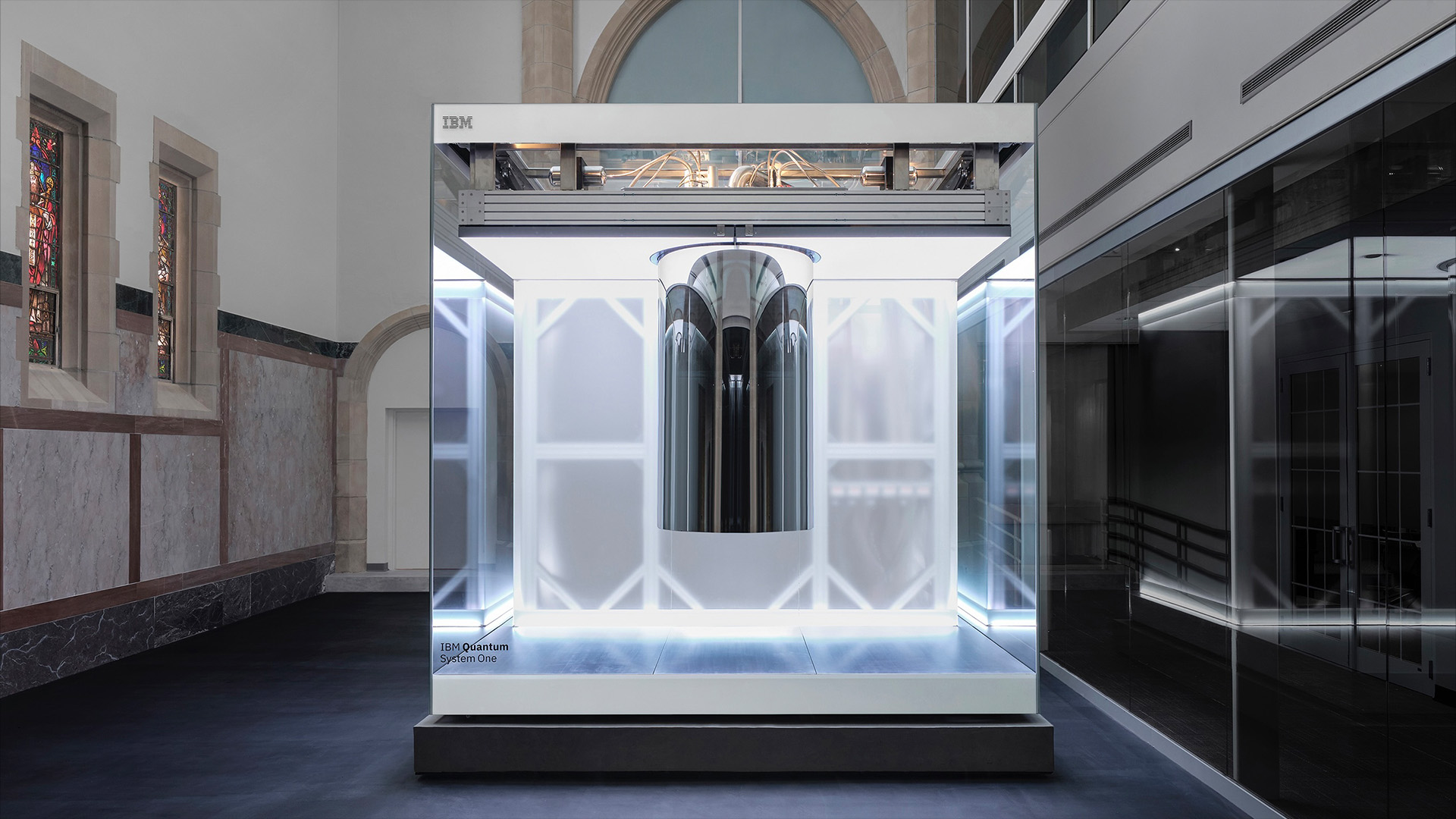New York college becomes 1st university with on-campus IBM quantum computer that is 'scientifically useful'
IBM's latest System One quantum computer is based at the Rensselaer Polytechnic Institute (RPI) and is the 1st IBM quantum machine to be installed at a university campus in the U.S.

The Rensselaer Polytechnic Institute (RPI) in Troy, New York, has unveiled a new campus-based quantum computer that can be used for scientific discovery — rather than one that's just used to run proof-of-concept trials.
The new IBM System One quantum computer is powered by a processor called "Eagle" that has 127 quantum bits, or qubits, IBM representatives said April 5 in a statement. This quantum processing unit (QPU) was first announced in 2021 and debuted in a System One machine in November last year that is used by the University of Tokyo. This quantum computer is not based on campus.
The company described the machine as "utility-scale" because it's powerful enough to serve as a scientific tool and help solve problems scientists would struggle with otherwise using conventional supercomputers alone.
RPI staff and students will be able to utilize the quantum computer to explore problems in chemistry, physics, material science and other fields, IBM said in the statement.
"When we describe “utility-scale,” we’re specifically referring to how quantum computers can now serve as scientific tools to explore new classes of problems in chemistry, physics, materials, and other fields that are beyond the reach of brute-force classical computing techniques," Jamie Garcia, technical program director for algorithms & partnerships at IBM Quantum, told Live Science.
"Put simply, quantum computers are now better at running quantum circuits than a classical supercomputer is at simulating them. This means, for the first time in history, quantum computers can be used as a computational tool for scientific exploration."
Get the world’s most fascinating discoveries delivered straight to your inbox.
In June 2023 IBM scientists demonstrated the power of Eagle by using a machine fitted with the QPU to simulate the magnetic properties of a real material faster than a classical computer could.
Quantum computers have the potential to be far more powerful than classical computers, but only if they're scaled up and the errors in qubits are mitigated. IBM's QPUs, and others like them, employ error-correction technologies to reduce the error rate of qubits, which can be highly error-prone — or "noisy."
Scientists don't expect to achieve "quantum supremacy" — in which quantum computers are more powerful than the fastest supercomputers — for many years. However, the results of IBM's 2023 experiment suggested it could be achieved within just two years, the scientists said at the time.
Last year, IBM unveiled the next generation of its QPU, known as the "Heron" processor. This chip, which has 133 qubits, will be fitted in the next generation of IBM quantum computers, known as "System Two" machines. Heron is five times more reliable than Eagle.
Scientists elsewhere are also working towards achieving quantum supremacy. A recent breakthrough saw scientists at Microsoft and quantum computing manufacturer Quantinuum collaborate to create error-corrected "logical qubits" that are 800 times more reliable than normal physical qubits.

Keumars is the technology editor at Live Science. He has written for a variety of publications including ITPro, The Week Digital, ComputerActive, The Independent, The Observer, Metro and TechRadar Pro. He has worked as a technology journalist for more than five years, having previously held the role of features editor with ITPro. He is an NCTJ-qualified journalist and has a degree in biomedical sciences from Queen Mary, University of London. He's also registered as a foundational chartered manager with the Chartered Management Institute (CMI), having qualified as a Level 3 Team leader with distinction in 2023.
 Live Science Plus
Live Science Plus





